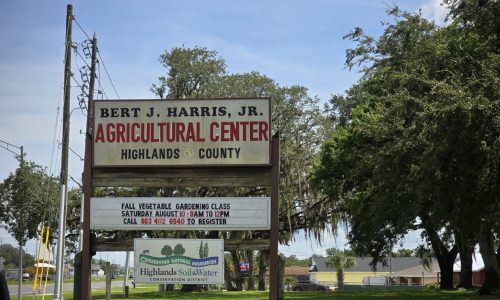By Nathan Cochran
Who is Bert Harris, and why is everybody talking about him? Bert J. Harris, Jr. was a farmer, a rancher, and a state representative. Among his many achievements, he is most well-known for championing private property rights in Florida. His legacy continues to influence local planning commission meetings and is frequently invoked to explain land use decisions.
The year 1995 was a momentous turning point in Florida’s land use law. That year was responsible for delivering the most significant property rights legislation in the country, the so-called “Bert J. Harris, Jr., Private Property Rights Protection Act,” commonly known as the Bert Harris Act. This landmark legislation aimed to safeguard private property owners from excessive governmental interference. It provides a mechanism for property owners to seek monetary compensation when government actions place an undue burden on their property’s value or use. Specifically, the Act gives a private property owner the right to make a claim for monetary damages when a governmental entity inordinately burdens an existing use of real property or a vested right to a specific use of real property. Fla. Stat. § 70.001(2). The Bert Harris Act quickly established itself as a critical component of Florida’s overall land use scheme, one of the most elaborate in the nation.
Specifically, the Bert Harris Act permits landowners to recover money against state and local entities when the government unduly interferes with their property. It is a method by which private property owners can recover if their property experiences a significant reduction in value due to government action. This body of law is separate and distinct from the takings law, which entitles landowners to just compensation when the government takes their land outright for public use. The Bert Harris Act compensates property owners for government action that does not amount to a complete constitutional taking. Fla. Stat. § 70.001(1).
Who was responsible for pushing such property rights legislation? Large, institutional property owners and politicians from both parties who were concerned about unprecedented land use regulations that threatened landowners’ established (vested) rights. While the Act has undoubtedly done some good, many feel disenfranchised by its effects, including several communities in Lee County. In retrospect, Bert J. Harris, Jr. himself expressed doubts about the legislation’s impact. Despite the Act being originally intended to protect property owners from the government, Harris, Jr. clarified that he never contemplated the Act being a weapon for developers.
So, what is the Bert Harris Act? It is intended to protect property owners who are treated unfairly by government officials, whose vested property rights are confiscated by an overreaching government. To put it bluntly, the Bert Harris Act does not apply to property owners attempting to “upzone” their properties by increasing the existing density, intensity, or uses permitted under existing law. The Act was aimed at protecting property owners so that they could maintain the existing use of their properties and pursue any foreseeable use.
What the Bert Harris Act is not – despite apparent cries to the contrary and noticeable misconceptions, neither the Bert Harris Act nor the U.S. Constitution provides property owners with a guarantee of maximum profits or an unassailable right to approval of all development proposals. Local decision-makers are not bound to approve developments simply because a property owner invokes the Act. Unfortunately, some county commissions and planners across the state have erroneously claimed that their hands are tied, using the Act as a reason to approve developments they might otherwise scrutinize more thoroughly. With hands up and shoulders shrugged, these decision-makers have urged their disgruntled constituents that there is nothing they can do but to approve certain developments. This defensive declaration misses the mark.
In reality, the Bert Harris Act is meant to protect property owners, not to grant developers the power to coerce local governments into approving projects. It is essential for local planning commissions to understand that the Act was never intended to be a blanket endorsement for all development proposals. Instead, it was meant to balance property rights with reasonable land use regulations, ensuring that property owners are compensated for undue burdens, without undermining local land use authority. This Act has undoubtedly had a chilling effect on land use regulations and innovation. However, local planning commissions are not permitted to abuse land codes and processes by taking refuge behind the Bert Harris Act. It was simply never intended to assume such a role.
Nathan Cochran is a student at the University of Florida Levin College of Law, class of 2025.









